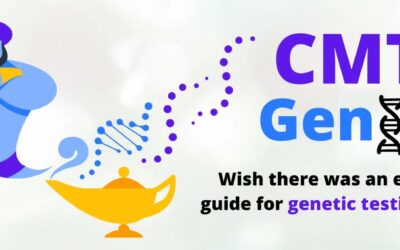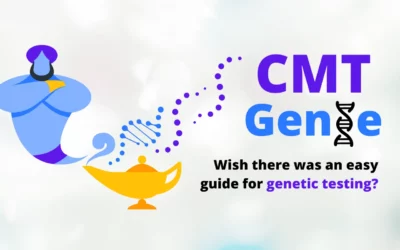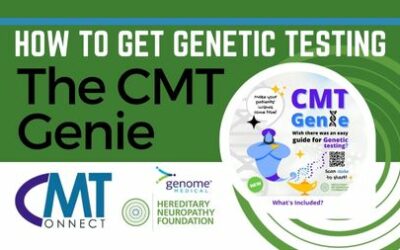Q: WHAT IS GENETIC TESTING?
A: Genetic testing analyzes your genes, which are the instructions encoded in your DNA. Your genes help determine your hair and eye color, height, and other physical traits that make you who you are. Genetic testing looks for variations in your genes that can lead to disease. You or your healthcare provider might consider genetic testing for a variety of reasons, such as confirming a disease you are suspected to have or understanding the cause of a disease that runs in your family.
Q: CAN MY FAMILY HISTORY TELL ME THE SAME THING?
A: Family history can offer clues to your future health. Collecting your family’s medical history may help you identify diseases you may be at risk for. Invitae believes that capturing a complete and accurate family history is critical to interpreting genetic results. That’s why we offer a free digital tool that allows you to map out your family medical history. Get started with your own family history today.
Q: WHAT CAN GENETIC TESTING TELL ME?
A: Genetic testing can confirm the diagnosis of CMT and simplify the process by avoiding uncomfortable and invasive procedures such as electromyography and nerve biopsy. In addition, early diagnosis can facilitate early interventions such as relevant therapies. Having a genetic diagnosis may also help determine which relatives are at risk, or even qualify affected patients to enroll in certain clinical trials.
Q: WHAT GENES ARE RELATED TO CMT?
A: To date more than 45 genes associated with CMT have been identified. Across all types of CMT, four genes account for the majority of cases (50%-75%): PMP22, MPZ, GJB1, and MFN2. Other genes have been identified as rare causes of CMT.
Q: WHAT CMT TESTS ARE AVAILABLE?
A: Invitae’s CMT testing options include pre-curated gene panels as well as the ability for a clinician to combine multiple panels or easily customize a panel to each patient. Invitae’s offering includes genes that cause CMT disease with dominant inheritance, recessive inheritance, and X-linked inheritance, as well as PMP22 deletions/duplications and sequence variants associated with hereditary neuropathies with liability to pressure palsies (HNPP). This 32- gene panel covers the most common genes associated with CMT types 1, 2, 4, X, and dominant intermediate.
Q: HOW MUCH DOES IT COST?
A: Your insurance may cover the cost of testing, and Invitae may be able to offer testing at limited or no expense to those who qualify for need-based financial assistance. Invitae believes in ethical and transparent billing; their current pricing options are:
- $475 per clinical indication for patient pay; please see the Invitae website for details.
- $950 per clinical indication for institutions and distributors under contract with Invitae and payers who contract with Invitae under certain terms.
- $1500 per clinical indication list price.
- Invitae also offers Medicare billing for patients who meet certain criteria and a Patient Assistance Plan (PAP) for Medicaid, uninsured, and low-income patients to remove financial barriers to testing. In addition, if Invitae believes that your out-of-pocket balance will exceed $100, they will notify you.
Q: HOW DOES THE TESTING PROCESS WORK?
A: Invitae wants to make the genetic testing process as smooth as possible. Here’s a quick overview of how it works:
- Order your test: Work with your healthcare provider to decide what type of genetic testing may be right for you.
- Provide a sample: Once you and your healthcare provider decide that genetic testing is right for you, a blood sample can be submitted for testing. Invitae offers a convenient service to have it drawn in your home at no additional charge.
- Get your results – and more: After your healthcare provider has ordered a test for you, you can sign in to Invitae’s online portal to check the status of your test, access your results, and explore helpful tools and resources. On average, results are available three weeks from the time Invitae receives the sample.
Q: CAN MY FAMILY MEMBERS GET TESTED?
A: If you receive a positive genetic test result from Invitae, family variant testing can be used to identify other family members with the same variant and provide information about their genetic risks. Invitae’s family variant testing involves full analysis of the gene in which the original family member’s variant was identified. The report will include the status of the familial variant as well as any other diseasecausing or likely disease-causing variant(s) identified in that gene. Family variant testing is provided to eligible family members for just $200 per gene for each family member tested. For more details, please visit the Invitae website.
Q: WHAT DOES INVITAE DO WITH MY DATA?
A: Invitae’s mission is to improve the quality of healthcare for billions of people by bringing comprehensive genetic information into mainstream medical practice. Your genetic information is incredibly valuable – both for your health and for accelerating the medical community’s understanding of genetic diseases. Invitae believes that individuals should own and control their genetic information. The company also believes that genetic information is more valuable when shared. Invitae actively collaborates with a database called ClinVar. Patients can also get access to important clinical research by registering with one of the groups listed on our website. These patient registries seek to better understand the associations between genes and disease. Participation is completely voluntary, and Invitae will never share patient-specific health information without permission. For more information, visit Invitae’s Privacy page.
 Stephanie Gandomi, M.S., LCGC of Invitae
Stephanie Gandomi, M.S., LCGC of Invitae
Stephanie is board-certified by the American Board of Genetic Counseling and has more than ten years experience in research, laboratory, and clinical practice.
She graduated from Brandeis University with her master’s degree in genetic counseling, and is an active member of the National Society of Genetic Counselors.











Nancy you are so correct. My pinkie toe Tendon was pulling the Toe straight up. The podiatrist I saw told me that I had pulled and he needed to operate putting a pin in my toe. Oh yeah, by the this was the second surgery on the same toe! Long story short they amputated my toe. This of course has lead to horrific pain, especially at the scar area, I have orthotics from 4-5 different Dr’s over the years and all told me it was due to a broken sacroiliac bone in two places. The atrophy was getting worse, but they all blamed the injury. Through many hours of research I realized what I had. My daughter is a DR. And gets a kick out of the fact that I self diagnosed my problems. At 58 I know it is to late, the damage is done! So now I fight to live life to my fullest. As to the pain, I am off the lyrica, gamapenton, and pain medications. I have found a trainer, accupressure and cannabis oil gummy bears I make from pure oil, Stevia . A couple at night Before bed numbs the pain. I can even put socks on now with out my feet going ballistic.
Have there been additional genetic markers identified in the last 8-10 years? I was tested as doctors were pretty certain I had a form of CMT, but testing at that time did not reveal a definitive genetic cause. Would it be beneficial to repeat testing now?
My daughter had CMT and had a surgery on her foot (tendon release) to help counter some of the structural abnormality. She has now developed a horrifyingly painful rare side effect presumably from either the procedure or the nerve block given immediately prior to the procedure: Complex Regional Pain Syndrome.
Should CMT patient’s be warned that this is more prevalent with those with CMT prior to these surgeries? We would never have done it if we knew. This condition makes CMT seem like a walk in the part. She is in severe constant pain. Does anyone have any personal experience or have any suggestions regarding how to proceed? What to do? We are devistated. She is only 24.
Can i request Invitae genetic testing through a pcp or is it best to go through my neurologist. I would need financial assistance so is that part done inconjunction with my Dr and Invitae or do i start that process. Thank you for all if your heloful informatuon!
I called my insurance company to see if they would cover the cost of the testing you discussed in this article. They asked me for 4 Codes and I’m hoping you can give those to me:
CPT Code
Procedure Code
Diagnostic Code
ICD-10
Thank You,
Hi Wallace, your physician should be able to accommodate you with those codes. If it is a problem, please reach out to us directly at [email protected] and we will connect you with the diagnostic companies for assistance. Best, AM
August Iaboni night mare
on September 23, 2015Please read what happens to me (In 2003 (August Iaboni )I took Levaquin with out warning of unreversable side effects.look at what I was getting in to 500 mg
intervenes daily for a period 3 week 24 hours 15 days and fallow up with 30 day perception until till finish
I was given the same treatment in 2004,2005 2006 2007 2008 I believed the doctors They Sed my pain is coming from cellulites, othritis pain and the fact I am getting old at 53 years old I should have aspected thing to go wrong I was in great health all my life i work out 3 to 4 x days weekly able to jump over park benches no problems with my body at allcould bench press 200lb. and so I just can’t believe what came next suffering the
debilitating effects of this drug.(levaquin) Tendinopathy throughout my body, peripheral neuropathy, damage to my central and autonomous nervous systems, vision problems, GI problems, heart and lung problems. I have spent tens of thousands of dollars Since I am not able to work since I can not walk stuck in my house, in my bed and suffer immense pain daily. Given the debilitating, costly, long-term (even permanent) effects of these drugs, there is no question that they are more dangerous than other antibiotics. If anyone disagrees, please name the antibiotic that causes more long-term and permanent multi-system effect I know it was levaquin in 2003 for cellulites skin infection pain was crippling hade to go on disability 2008 in order to support my existence in a one room apartment on my bed I found out about levaquin in 2013 on tv at 3:15 am Here we go…
Keep in mind, Johnson & Johnson only has ONE source of income, the wallets of consumers who are their customers and shareholders – ultimately, the fines, restitution and long-term health consequences for their victims comes from inflating the price of their products: drugs, consumer goods, medical devices.
Johnson & Johnson failed to Warn and hid the facts of the potential danger of levaquin. MANUFACTURER: Johnson & Johnson’s Ortho-McNeil-Janssen Pharmaceuticals, Inc.
OVERVIEW: Levaquin (levofloxacin) is an antibiotic that is part of a group of drugs known as fluoroquinolones. It is one of the most widely used antibiotics, and has been used by millions of Americans.might assume that a pharmaceutical representative might have been forewarned about taking a drug so dangerous that it can cause a lifetime of irreversible agony, but the bitter irony is that not even the representatives have been made fully aware of the flaws and dangers in many of the drugs they are selling, due to what alleges are deceptive marketing practices.
Prior to the introduction of generic competitors, Levaquan generated over $1.3 billion in annual sales for the drug makers.plus 1.50 billion in their
Hi I have cmt and I would like to have the genetic testing done. I would also like to participate in any studies that you have. We need to find a cure for this horrible disease.
Hi Linda,
Please visit https://www.hnf-cure.org/genetics-cmt/ to learn about genetic testing or ask your Health Care Provider.
I have had Heredity Neuropathy for 8 years, the meds I have had do not relieve the burning and freezing of my feet and legs. I’m 77 years old.
My son Michael has had neuropathy for over 20 years, at first we thought he had his from lawn care chemicals. Now that I have it part of it may be heredity neuropathy.
Patricia,
Thank you for sharing your story. I am sorry for what you and your son are going through. Hope you find our website helpful to relieve some pain.
Courtney
Thanks Courtney. I will keep reading your posts!